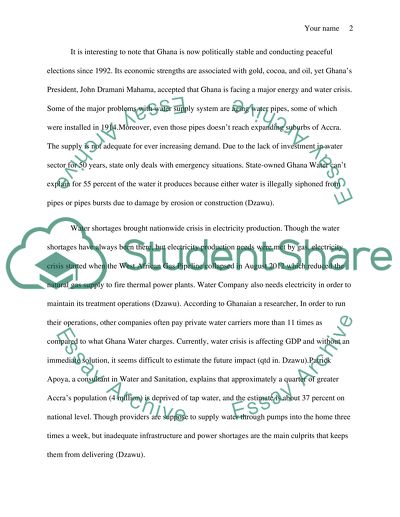Cite this document
(“Water in Africa Research Paper Example | Topics and Well Written Essays - 1500 words”, n.d.)
Water in Africa Research Paper Example | Topics and Well Written Essays - 1500 words. Retrieved from https://studentshare.org/english/1670162-water-in-africa
Water in Africa Research Paper Example | Topics and Well Written Essays - 1500 words. Retrieved from https://studentshare.org/english/1670162-water-in-africa
(Water in Africa Research Paper Example | Topics and Well Written Essays - 1500 Words)
Water in Africa Research Paper Example | Topics and Well Written Essays - 1500 Words. https://studentshare.org/english/1670162-water-in-africa.
Water in Africa Research Paper Example | Topics and Well Written Essays - 1500 Words. https://studentshare.org/english/1670162-water-in-africa.
“Water in Africa Research Paper Example | Topics and Well Written Essays - 1500 Words”, n.d. https://studentshare.org/english/1670162-water-in-africa.


